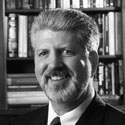Advisory Board and Editors Epidemiology

Eduardo Castro-Nallar
Originally trained as a biochemist, got a PhD in Biological Sciences at The George Washington University, and now is a Professor in the Center for Integrative Ecology and in the Department of Microbiology, Universidad de Talca, Chile.
Eduardo is interested in microbial (meta)genomics, computational biology, and bioinformatics.

Davide Chicco
Davide Chicco is a scientific researcher at the University of Toronto. He received his PhD. from Politecnico di Milano in 2014, and his MSc. in Computer Science from the University of Genoa, Italy in 2010. From September 2018 to January 2020 he was a researcher at the University Health Network (Toronto, Ontario, Canada). Davide Chicco's research centres on biomedical informatics and machine learning.

C Robert Cloninger
Director, Anthropedia Institute for Well-being Research; Professor Emeritus of Psychiatry at Washington University in St. Louis.

Gary S Collins
Gary has research interests primarily focussed on statistical (and reporting) aspects in developing and validating multivariable prediction models. He has published over 100 papers on clinical trials, observational studies, systematic reviews, quality of life, propensity scores and prediction models.
Gary is a statistical editor ("hanging committee") for the BMJ.
Gary also led the development of the TRIPOD Statement for reporting clinical prediction models - www.tripod-statement.org.

Anne Conan
Dr. Anne Conan is a veterinary epidemiologist. Her main research topic is the epidemiology of infectious diseases in low-income farming systems, including the consequences of the intensification of chicken farming, the epidemiology of African swine fever , the epidemiology of Coxiella burnetii in humans and livestock, and the control of rabies in humans and dogs. She has worked in Cambodia, South Africa, St. Kitts (West Indies) and Hong Kong SAR. She is now based in Zimbabwe studying the topics of One Health and of the surveillance of infectious diseases.

Aldo Croquer
Dr. Aldo Croquer graduated from Universidad Central De Venezuela in 1998. His PhD is in Biological Sciences and has been a Postdoctoral Fellow 3 times, a Senior Professor at Simon Bolivar University and currently Coral Program Manager of The Nature Conservancy in the Dominican Republic. I am interested in coral reef ecology, benthic ecology and coral biology ecology, including life history traits, coral disease-health dynamics and ecological restoration.

Maha El Tantawi
Professor of Dental Public Health in Alexandria University, Egypt.

Ibrahim Elsohaby
Dr. Ibrahim Elsohaby is Assistant Professor in the Department of Infectious Diseases and Public Health and City University of Hong Kong. His current research investigates the One Health epidemiology of infectious and zoonotic diseases, including antimicrobial resistance. The aim of this research is to use epidemiologic and quantitative methods to develop realistic antimicrobial stewardship strategies based on a One Health approach and to reduce the risk of zoonotic diseases transmission to human contacts and general public.
Maria Elena Flacco
Prof. Maria Elena Flacco is Associate Professor of Epidemiology, Medical Statistics and Public Health at the University of Ferrara, Italy. Her areas of research include epidemiology, public and occupational health, and biostatistics and methods.

Dina M Fonseca
Professor in the department of Entomology at Rutgers University and also a member of the graduate programs in Ecology and Evolution and Microbiology and Biochemistry. I am primarily a molecular ecologist examining how populations of invasive species change upon arrival and expansion and, in the case of disease vectors, how they affect epidemiological landscapes and risk estimates. From 2008-2013 I was the lead PI at Rutgers on a cooperative agreement funded by USDA-ARS to develop and test Area-wide Integrated Mosquito Management strategies to control Aedes albopictus, the Asian tiger mosquito. In July 2017 I became the Director of the Center for Vector Biology, a program that provides accreditation, continuing education and broadly supports the extended NJ Mosquito Control community. I have developed a strong extension program working with professional mosquito control programs using vector biology, ecology and evolution to develop effective and efficient strategies for control. I have also spearheaded urban mosquito control by residents through Citizen Action Through Science (Citizen AcTS): http://vectorbio.rutgers.edu/CitizenAcTS.htm. Founding member of the Worldwide Insecticide resistance Network (WIN): https://win-network.ird.fr/ and founding member of InSITe (Innovative Strategies for Invasives Team) using environmental DNA (eDNA) and risk analysis to detect and contain invasive species https://www.insiteru.org.

Simon DW Frost
Reader in Pathogen Dynamics at the University of Cambridge; formerly Adjunct Associate Professor in the Dept. of Pathology, University of California San Diego (UCSD). Graduated with a BA in Natural Sciences (1st class), Trinity College, Cambridge (1992), DPhil in Mathematical Biology, Merton College, Oxford (1996). Postdoctoral positions at Princeton University, Oxford University, University of Edinburgh and UCSD. Awards include: NATO Postdoctoral Fellowship (1996), MRC Nonclinical Training Fellowship (1997-2000), a Royal Society Wolfson Research Merit Award (2008-2013), and Thomson-Reuters Highly Cited Researcher awards in 2014, 2015, and 2016.

Liang Gao
Dr. Liang Gao currently works as a senior Research Fellow at the Center of Experimental Orthopaedics, Saarland University, Germany. His clinical interests include sports medicine, arthroplasty, and traumatology. His research focuses on joint preservation and orthobiologics.
Dr. Gao studied Medicine in China and Germany with intensive fellowship training in both Asia and Europe. He completed the Musculoskeletal Surgical Oncology residency training at Peking University Medical Center, China. Moreover, he obtained his master of science degree (Radiation Oncology) from Heidelberg University, Germany and his doctorate (Biological Therapy) summa cum laude from Saarland University, Germany.
Dr. Gao is the Member of the Basic Science Committee of International Cartilage Regeneration & Joint Preservation Society (ICRS), the Member of the Early Career Investigator Committee of Osteoarthritis Research Society International (OARSI), and the Founding Member of the Sino Euro Orthopaedics Society (SEOS).

